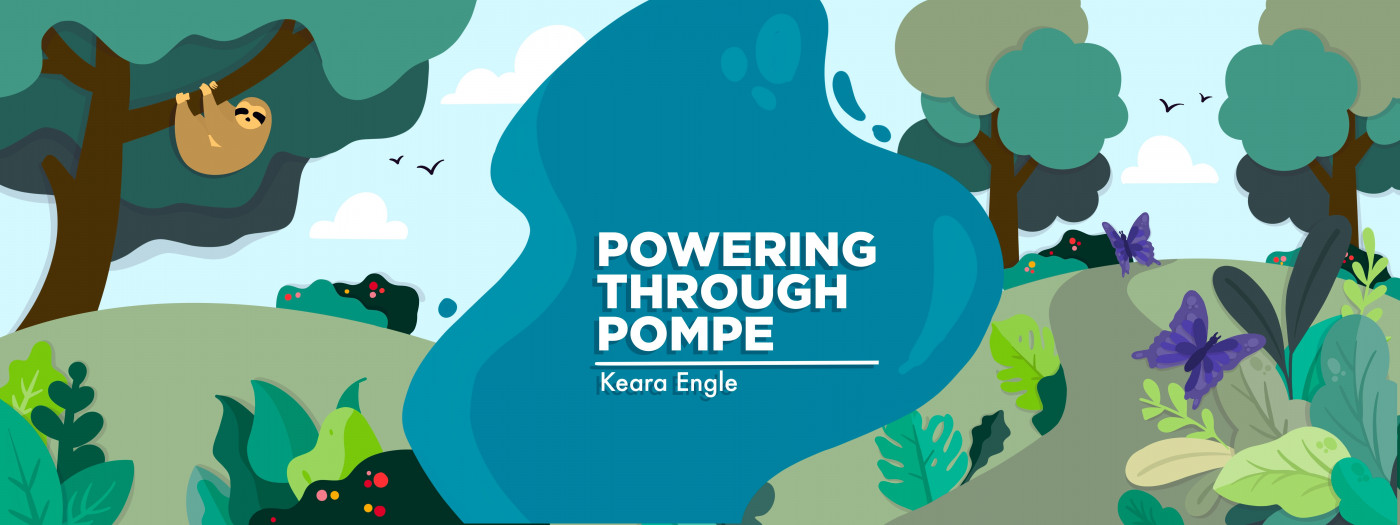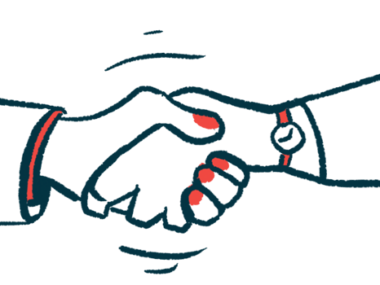An Illness Doesn’t Have to Be Visible to Be Real
Written by |

A rare disease is not always visible. Just because someone may look “fine” on the outside doesn’t mean that they don’t have struggles they face daily because of their disease. Pompe disease is one of those diseases.
Pompe disease can onset any time throughout a person’s life. Some people are affected at birth, while others may not have any effects from the disease until they’re a teenager, or even an adult. Because of this, some people with late-onset Pompe disease can live with symptoms that aren’t visible and then develop visible symptoms later in life, which only then might lead to a diagnosis.
My 3-year-old son, Cayden, was diagnosed with the infantile-onset form of Pompe disease when he was only a month old. Cayden’s disease is a bit more visible because he can’t walk and because he is fed through a gastrostomy tube (G-tube), but most kids his age don’t even realize that he has a disease. They don’t usually ask questions until they realize that Cayden can’t get up and run around the way they can, or until they notice his G-tube and wonder why it is coming from his belly.
As an aside, questions and concerns about Cayden don’t bother me; kids are so innocent. And educating children about rare diseases at a young age can be beneficial. It can help them understand that everyone is different and to treat people with respect.
Invisible illness, visible on the inside
While Cayden’s disease is visible, but maybe not that easily noticed by kids his own age, some people with Pompe disease are living with an actual invisible illness. They’re surrounded by their peers, fitting in the best they can — which is great — but I know these people go through the same routines that my son does. Between infusions, doctor appointments with specialists, and therapies it can be so overwhelming to manage it all. Let’s not forget the fact that these people have to miss school and work to accommodate those requirements. Hospitalizations, surgeries, and even daily aches and pains are also common.
My heart really goes out to these folks, both because they have so much to manage, and because they must face the scrutiny of others. While they may appear to be fine, someone could see a person who can walk, talk, eat, and even exercise, and wonder, “What’s really wrong with them?” This could make them feel like they have to open up and speak up about their struggles in order to help someone realize that living with a rare disease is a big deal.
A coworker may not understand why a person with Pompe disease may need more breaks during their shift. Standing and walking for long periods of time can be a real challenge for those with Pompe disease and, as a result, they may need time to sit and rest their muscles for a bit. Also, school-aged children with Pompe disease may not be able to participate in the same exercises as their peers during gym class because of their muscle weakness. This could cause their classmates to think they are lazy when that’s not the case at all.
People living with a rare disease have so many struggles and they deserve support. A rare disease is a big deal, whether visible symptoms are present, or not. It would be a big help to those living with a rare disease if people made a greater effort to understand this.
***
Note: Pompe Disease News is strictly a news and information website about the disease. It does not provide medical advice, diagnosis, or treatment. This content is not intended to be a substitute for professional medical advice, diagnosis, or treatment. Always seek the advice of your physician or other qualified health provider with any questions you may have regarding a medical condition. Never disregard professional medical advice or delay in seeking it because of something you have read on this website. The opinions expressed in this column are not those of Pompe Disease News, or its parent company, Bionews, and are intended to spark discussion about issues pertaining to Pompe disease.



Leave a comment
Fill in the required fields to post. Your email address will not be published.